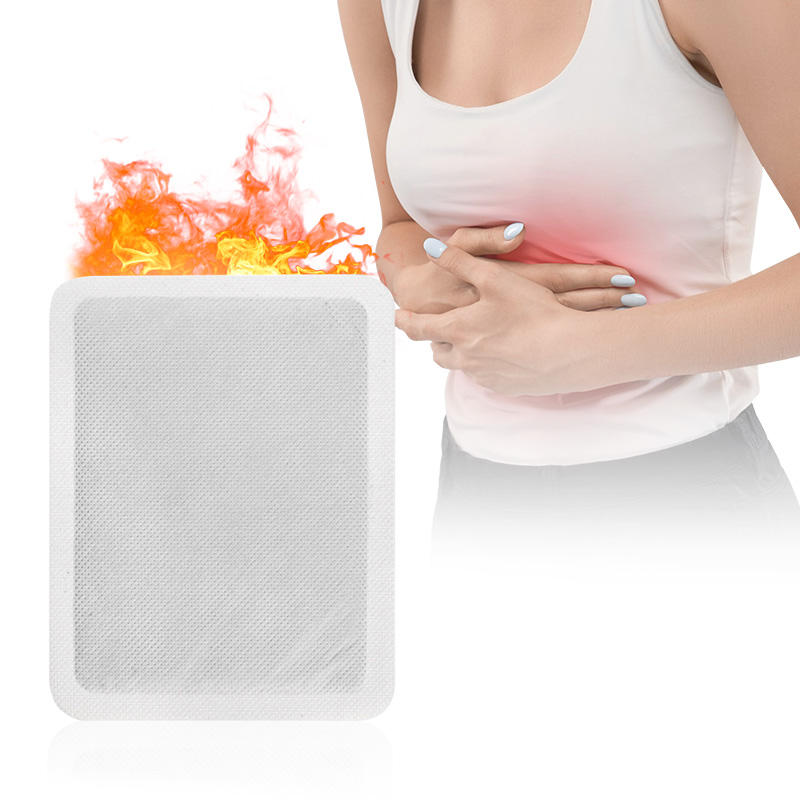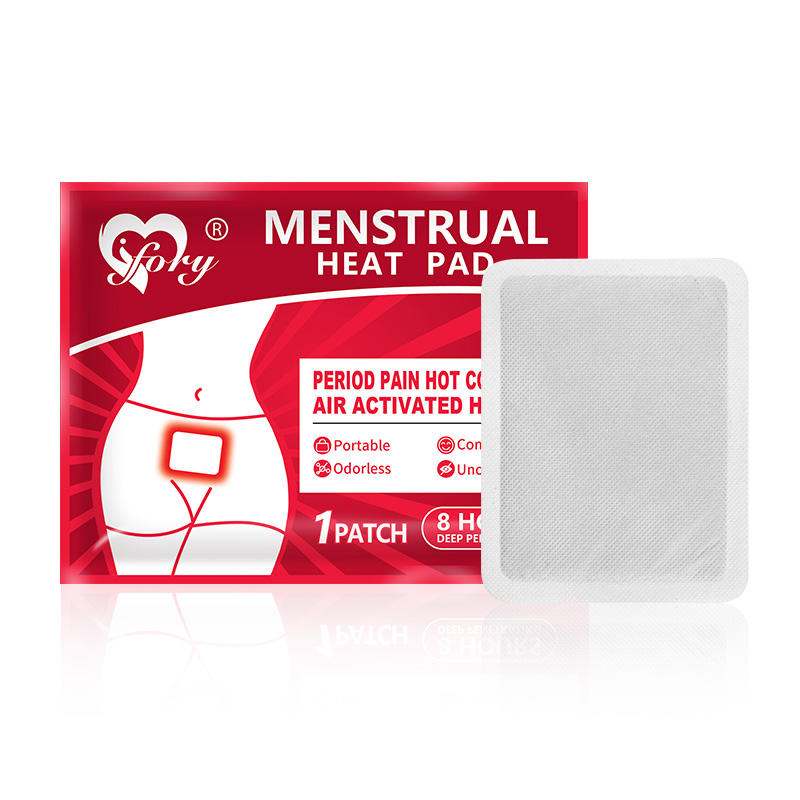Why Is Regulatory Compliance Important for Menstrual Heat Pads?
Regulatory compliance is critical for the safe and effective use of any health product, and menstrual heat pads are no exception. These products are increasingly popular as they provide natural relief for menstrual discomfort, but they come with specific safety and quality standards. For brands looking to produce or sell menstrual heat pads, understanding and ensuring compliance with regulatory requirements is essential. This guide will delve into why regulatory compliance is necessary for Menstrual Heat Pad Manufacturers, the key regulations to consider, and how compliance impacts consumer trust and market success.

1. Understanding Regulatory Compliance for Menstrual Heat Pads
Regulatory compliance involves adhering to laws and guidelines set by government agencies to ensure that products meet safety, efficacy, and quality standards. Compliance is particularly important for Menstrual Heat Pad Manufacturers because these pads are applied directly to the skin, require consistent heating mechanisms, and are used to alleviate health-related issues.
For Custom Menstrual Heat Pads and Private Label Menstrual Heat Pads, regulatory requirements may vary depending on the target market, but common areas of compliance include:
- Safety Standards: Ensuring the materials used in pads are safe and do not cause skin irritation.
- Performance Standards: Confirming that the heating mechanism performs consistently and safely.
- Packaging and Labeling: Following guidelines for clear, accurate labeling, including usage instructions, safety warnings, and material disclosures.
2. The Role of Regulatory Compliance in Product Safety
Compliance is integral to ensuring the safety of menstrual heat pads. By following industry standards and regulations, Menstrual Heat Pad OEMs can protect consumers from potential hazards related to improper heating, skin reactions, or product malfunctions.
Key Safety Areas Covered by Compliance:
Heat Regulation: Regulations ensure that the pad heats to a safe temperature that won’t cause burns or discomfort. Heat control is especially critical for Custom Menstrual Heat Pads with adjustable heat settings, as improper regulation can lead to risks for the user.
Material Safety: Compliance ensures that all materials used are non-toxic, hypoallergenic, and safe for skin contact, which is particularly important for Menstrual Heat Pad Suppliers providing options to sensitive skin users.
Chemical and Environmental Safety: Many Menstrual Heat Pad Manufacturers use air-activated heating elements that involve chemical reactions. Regulatory compliance verifies that these chemicals are used within safe limits and are environmentally safe, ensuring products meet both consumer and environmental safety standards.
3. Regulatory Compliance and Consumer Trust
Compliance with regulations is a key factor in building consumer trust, as it assures customers that the product they’re using is safe, effective, and reliable. This is crucial for both Private Label Menstrual Heat Pads and established brands, as non-compliance can lead to product recalls, negative reviews, and loss of reputation.
Brand Credibility: When a Menstrual Heat Pad Supplier complies with all regulatory standards, it sends a message to consumers that the brand values their safety and well-being, fostering loyalty and credibility.
Transparency: Regulatory guidelines often require transparent labeling, which allows consumers to understand exactly what they are using. Brands that prioritize transparency in their Custom Menstrual Heat Pads through clear ingredient lists, heating instructions, and warning labels tend to attract more loyal customers.
4. International Standards and Market Access
For brands looking to expand internationally, compliance with local regulations is necessary to access new markets. Different countries have their own standards for product safety, and Menstrual Heat Pad OEMs must meet each region’s requirements to be allowed to distribute their products there.
FDA (U.S.): In the United States, the Food and Drug Administration (FDA) regulates health-related products. Menstrual Heat Pads may need to comply with FDA standards, particularly if they claim therapeutic benefits.
CE Marking (EU): In Europe, menstrual heat pads may require CE marking, which indicates that they meet health, safety, and environmental protection standards in the European Economic Area.
ISO Certifications: International Organization for Standardization (ISO) certifications demonstrate that a Menstrual Heat Pad Manufacturer meets global quality standards. Certifications such as ISO 9001 for quality management are valued by consumers and can also facilitate market entry worldwide.
5. Potential Consequences of Non-Compliance
Failing to comply with regulatory standards can result in serious consequences for Menstrual Heat Pad Manufacturers and brands. These can include:
Product Recalls: Non-compliant products may need to be recalled from the market, which is costly and damages brand reputation.
Legal Issues: Non-compliance may lead to fines, penalties, or lawsuits if the product is found to harm consumers.
Loss of Market Access: Non-compliance can prevent a Private Label Menstrual Heat Pad from entering certain markets, limiting its reach and profitability.
6. How Menstrual Heat Pad Manufacturers Ensure Compliance
Most reputable Menstrual Heat Pad OEMs have dedicated quality control teams to ensure that all products meet regulatory standards. Here’s a look at the steps they typically take to maintain compliance:
Quality Assurance and Testing
Menstrual Heat Pad Suppliers often conduct rigorous testing on their products, including heat consistency, durability, and material safety checks. Testing verifies that the product performs as intended under various conditions.
Documentation and Record-Keeping
To remain compliant, Menstrual Heat Pad Manufacturers must maintain accurate records of testing results, raw material sources, and manufacturing processes. Proper documentation helps brands demonstrate compliance during audits and inspections.
Regular Audits
Many Menstrual Heat Pad OEMs perform regular internal and external audits to identify and correct any potential issues. These audits help manufacturers stay up-to-date with changes in regulatory standards and prevent compliance lapses.
7. Key Considerations for Brands Choosing a Menstrual Heat Pad OEM
When selecting a Menstrual Heat Pad Manufacturer or Menstrual Heat Pad Supplier, brands should consider their compliance practices. Here are a few questions to ask:
- Does the manufacturer have certifications (e.g., ISO, CE, FDA)?
- What quality control processes do they have in place?
- Can they provide documentation of compliance for all materials and processes?
- Do they conduct regular audits to ensure ongoing compliance?
Ensuring that the Menstrual Heat Pad OEM you choose adheres to compliance standards will not only safeguard your brand’s reputation but also protect your consumers.
Frequently Asked Questions
1. What regulations must menstrual heat pads comply with?
Menstrual heat pads should meet safety standards for heat regulation, material safety, and clear labeling. The exact requirements depend on the country of distribution and intended product use.
2. Can a Menstrual Heat Pad OEM help with compliance?
Yes, reputable Menstrual Heat Pad OEMs often have quality control teams dedicated to ensuring products meet all regulatory standards, helping brands avoid compliance issues.
3. Why is regulatory compliance essential for menstrual heat pads?
Compliance ensures the product is safe, effective, and reliable, which helps build consumer trust and prevents costly legal or market access issues.
4. Do all countries have the same regulatory standards for menstrual heat pads?
No, regulatory standards vary by country. For example, the FDA governs product safety in the U.S., while CE marking is needed in the EU. Working with a Menstrual Heat Pad Supplier familiar with international regulations can help ensure compliance.
5. What happens if a menstrual heat pad does not meet compliance standards?
Non-compliance can lead to product recalls, fines, and loss of market access, as well as potential legal issues if consumer safety is compromised.
By ensuring regulatory compliance, Menstrual Heat Pad Manufacturers and Menstrual Heat Pad OEMs can help brands produce high-quality, safe, and market-ready products that inspire consumer trust and confidence.






